Objectives and targets
Key objective: to implement progressive work practices to support a better work-life balance.
Response lead: Human Resources and Organisation Development
We aim to implement progressive work practices to support a better work-life balance and embed the principles of equality, diversity and inclusion.
Key objective: to implement progressive work practices to support a better work-life balance.
Response lead: Human Resources and Organisation Development
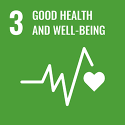
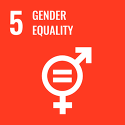
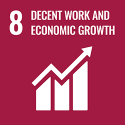
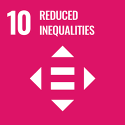
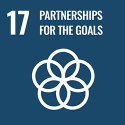
We recognise that our staff and students are key to the success of our Sustainability Plan – not only in terms of the personal choices we make about how we work and study but also how sustainable choices can be facilitated and supported beyond work and study by our processes and policies.
All new staff members - both academic and professional services - are required to complete training focused on environmental sustainability as part of their induction. This also applies to new PhD students from the Faculty of Natural Sciences and the Faculty of Health Science and Sport. This training is delivered through a dedicated online module which forms a core part of the staff induction process. The course introduces staff to key environmental challenges and highlights the critical role that individuals play in supporting the University’s efforts to reduce its carbon footprint and operate sustainably. The module clearly outlines the responsibilities and expectations of all staff in relation to sustainability, and provides practical guidance on how to contribute to an environmentally responsible workplace.
Education and enhanced awareness are key drivers of behaviour change. We, therefore, proactively champion sustainability as a priority for all our communities. This is an ongoing process achieved through the leadership provided by the Principal and Vice Chancellor, Professor Sir Gerry McCormac and the senior management team of the University, to the creation of awareness campaigns and the activities of our Green Champions network, through to our partnership working with staff and Trade Union representatives and engagement with our students and Students’ Union. Both Trade Union and Student Union representatives are members of the Corporate Sustainability Steering Group which has oversight of our progress against our sustainability targets. We also regularly review our core processes for the management of staff and external partnerships to ensure that responsible environmental behaviours are supported and prioritised.
As part of our commitment to sustainable development, we recognise our responsibility to support socially progressive outcomes through our employment arrangements and procurement decisions. We support the principles of the real living wage and work closely with regional Local Authority partners and non-governmental organisations (NGOs) in Stirlingshire, Clackmannanshire, and Falkirk to support a just transition to a green economy.
As a major employer in the region, we believe it is important to lead by example. We prioritise mental health and well-being in our staff and students. We have delivered Mental Health Awareness sessions for line managers and staff; a well-being programme for staff that focuses on developing mental well-being and resilience; provided additional rest days to support health and well-being; and an Employee Assistance Programme that gives free, confidential advice 24 hours a day, 365 days for all employees and immediate family members.
People are at the heart of all these activities. We have recently developed progressive work practices that enable staff and students to work and learn in agile ways. Most recently, we have implemented an Agile Working Framework which provides a means of achieving a better work- life balance while at the same time ensuring that institutional goals and targets are met. This new way of working has, for some staff, lessened the need to make commuting journeys on a daily basis, thereby contributing to a reduction in Scope 3 emissions. Agile working will be subject to review as we respond to changing business and staff needs.
We have been sector-leading for many years in the promotion of women’s careers. We were instrumental in the development of the influential Aurora programme which has subsequently been rolled out across the UK to support women’s career development. We also hold an Athena Swan Silver Award award which attests to the importance we attach to equality, diversity, and inclusion.
We are committed to supporting care students and students from lower socio-economic backgrounds. In line with the Scottish Funding Council’s (SFC) Commission On Widening Access (CoWA) we measure and track the recruitment and retention of students from 20% of the most deprived areas in Scotland, in line with supporting the SFCs sector wide of 20% of entrants to come from deprived areas. We also have an institutional target to narrow the completion degree classification attainment gap. Between 2018/19 and 2023/24 this reduced from 17.8% to 6.9%.
We provide funded studentships and a research fellowship for refugees through the CARA scheme.
Our Sanctuary scholarships are awarded to postgraduate, access and undergraduate students who are in the UK and have applied for asylum or are staying in the UK as refugees or on humanitarian grounds.
Our sustainability strategy seeks to encourage active travel and a modal shift to greener forms of transport. These measures not only support our carbon reduction targets but enhance the health and well-being of our staff and students.
We are supporting Menopause Awareness Month (October) with a number of sport and health events. The month helps us raise awareness of the menopause, how symptoms can be experienced and what support is available to staff. Our staff can join the Menopause Network for peer-to-peer support and guidance. They can also access the Peppy app for trusted information and real, human experts for free, personalised, and confidential support in the areas of menopause.
As part of the Scottish Government funded initiative, the University supports and provides access to free-period products which are available through either an order and collect service or through the provision of products at facilities across campus. Condoms are also accessible and free to students to improve sexual and reproductive health via the Students Union, Campus Pharmacy and at the on-site NHS run Airthrey Park Medical Centre.
The Airthrey Park medical centre provides free access to Sexual Health and Lifestyle clinics where students can attend surgeries to deal with any aspect of sexual health, including screening for sexually transmitted infection, HIV testing and pre and post test counselling, Hep A/B vaccinations for high risk groups.
The University of Stirling also runs a successful Gender Based Violence campaign which includes an essential course as part of induction to the University. The course educates students on sex and consent, communication in relationships including sex, respect and boundaries and how to look out for others in difficult situations.